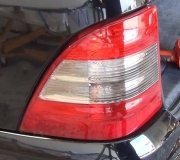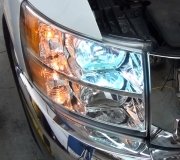There's a better alternative to those circuit breakers. A simple trick to finding a short is to replace the blown fuse with a pair of spade terminals, then use small jumper wires to connect them to a 12 volt light bulb. A brake light bulb works well. When the circuit is live and the short is present, the bulb will be full brightness and hot so be sure it's not laying on the carpet or against a plastic door panel. Now you can unplug electrical connectors and move things around to see what makes the short go away. When it does, the bulb will get dim or go out.
Fuse 7 feeds a number of systems with switches in the front doors. I'd start by opening and closing the driver's door. If the test light flickers, check for broken or frayed wires between the door hinges.
When the engine originally didn't start, what was the symptom? Did the starter crank the engine? Did the dash lights work? If everything was totally dead, follow the smaller positive battery wire to the under-hood fuse box and be sure that connection is clean and tight. That's a common cause on all car brands for an intermittently totally-dead electrical system.
Be aware you're going to have a hard starting / stalling problem since the battery was disconnected. The Engine Computer lost its memory and will have to relearn "minimum throttle" before it will know when it has to be in control of idle speed. You also won't get the nice "idle flare-up" to 1500 rpm at start-up and the engine will tend to stall at stop signs. To meet the conditions for the relearn to take place, drive at highway speed with the engine warmed up, then coast for at least seven seconds without touching the pedals.
Saturday, April 4th, 2015 AT 6:50 PM


